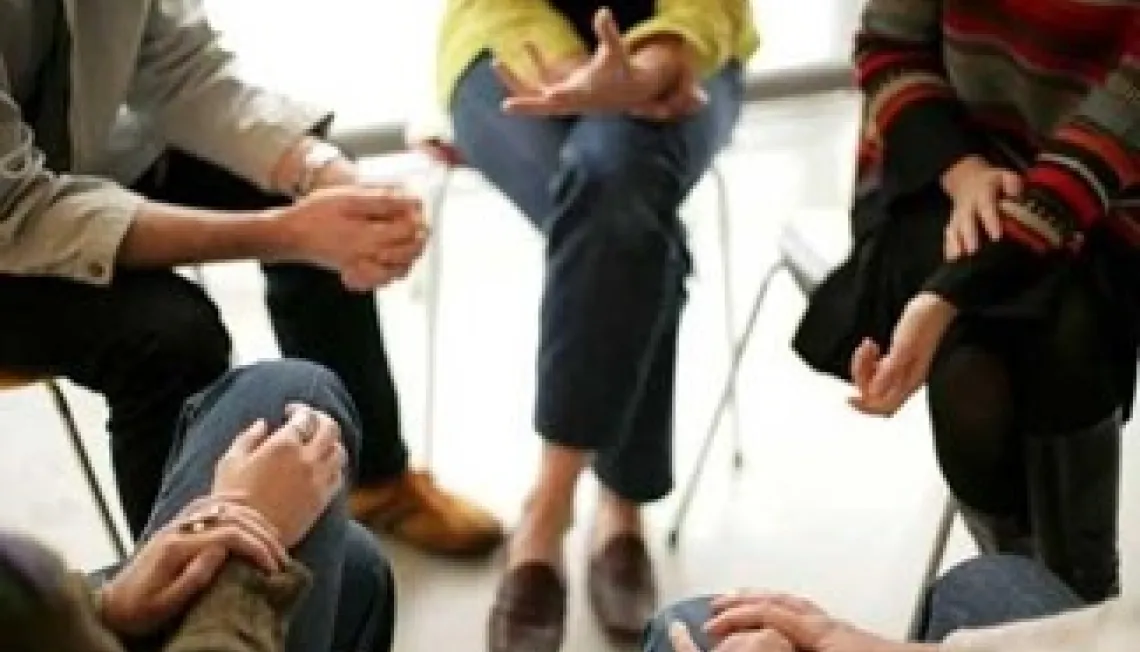We spoke with Sarah Cowen, Family Caseworker at Future Living, about these two projects.
About the Monica Programme
“What they get is a room full of women who get it as it is about having [their concerns] validated and being heard and being seen”
The Monica Programme is a 12-week solution focussed course that covers a different topic each week for women who are no longer in an abusive relationship. This is formed of group sessions as well as participants being provided with a weekly person-centred counselling slot to address triggering subjects that have been discussed amongst the group. Operating during term time, the programme takes place three times a year and is limited to 18 participants. Such a bespoke group support programme has been designed by Sandra Conte, CEO of Future Living, as she has recognised over the years exactly what women need. Subsequently, it is now an accredited training programme through the University of Hertfordshire.
Topics
Topics addressed include recognising red flags, looking at healthy and unhealthy relationships, toxic behaviours such as gas lighting and love bombing, as well as addressing the difference between being assertive and being aggressive within their partners and themselves. It also uncovers how domestic abuse impacts children and their development as well as how it can impact their adult lives, especially on mental wellbeing.
Being ready to address trauma
Participants who miss more than two sessions are asked to re-join the next programme as a lot of content is covered each week with sessions taking place for two hours and 15 minutes. Despite the completion rate being high, there are a few participants who begin the programme and realise that they are not quite ready to address their trauma.
Referrals
Referrals include self-referrals and those from GPs and social workers. Future Living is also signposted from other domestic abuse agencies/support groups.
Further support
As the participants near the end of the programme, there is always an element of trepidation. Thus, the programme addresses talking about endings very early on. If they do require more support post programme, then Future Living provides a low-cost affordable counselling service. Furthermore, the other participants become a form of support as they usually set up a WhatsApp group. Some participants may also access other services such as art therapy sessions or “Kids Kit” which is a set of sessions designed to equip parents with the necessary tools to help their parenting.
Feedback
As a facilitator, Sarah highlights how her teaching background can benefit the sessions. Participants are able to access therapists and counsellors outside of the sessions so her approach provides another strand of support. Sometimes it is about teaching the participant how to recognise and make changes and provide them with direction. This has been highlighted in debriefs and feedback from the women who have completed the programme.
About Wise Guys
Wise Guys provide support to male survivors of domestic abuse. The sessions are an hour and a half long and take place over 12 weeks. It functions differently from the Monica Programme as men are averse to group work. As a result, it is currently offered as one-to-one support or in response to demand.
Barriers
Due to societal expectations of men’s behaviour and how they should address their emotions, the programme addresses how to break down such barriers by providing the men with the necessary tools. As most men are not ready for group work, they are able to access low-cost affordable counselling. Also, most men self-refer instead of accessing support via other routes. Future Living is currently in talks on how to overcome this and Sarah is part of the development panel. To overcome the stigma, Sarah ultimately believes that partnerships are needed between the police and other agencies.
If you would like to learn more about these programmes as well as other services provided by Future Living Hertford, please send an enquiry to info@futurelivinghertford.co.uk
This case study was compiled by Maysa Clam in 2022.
